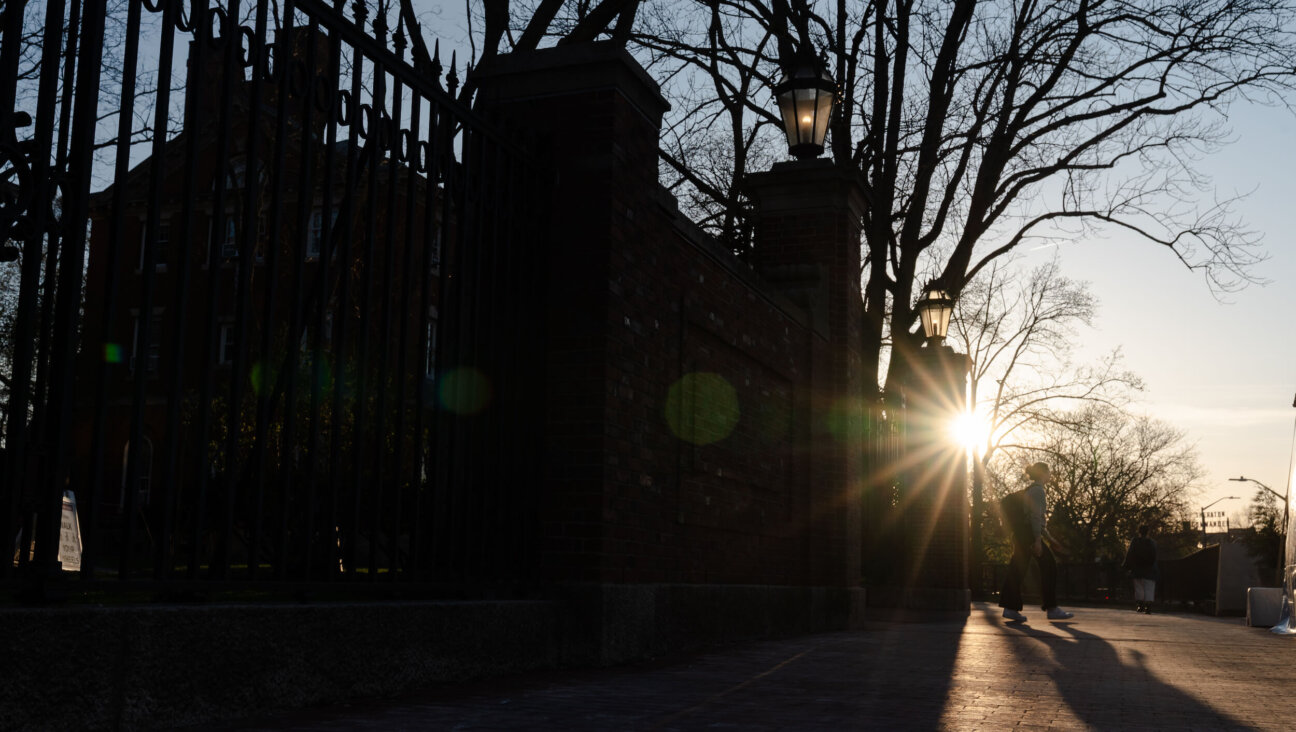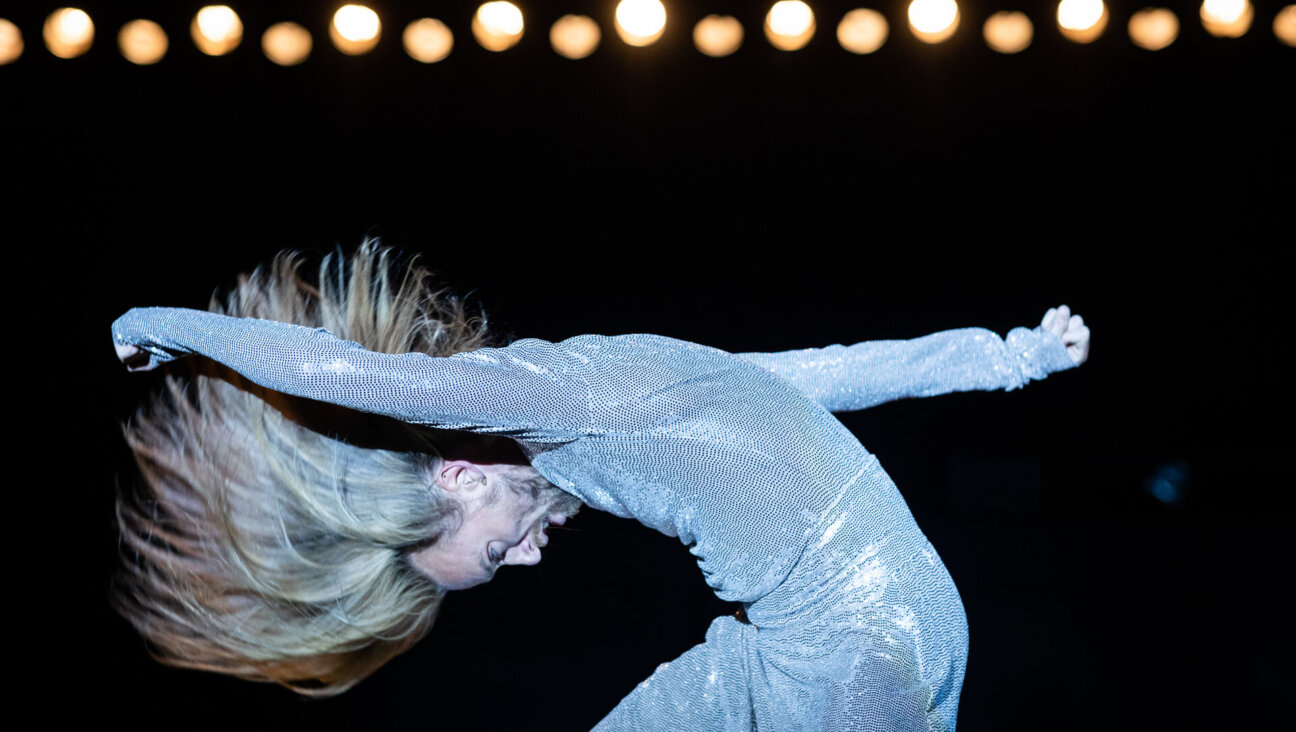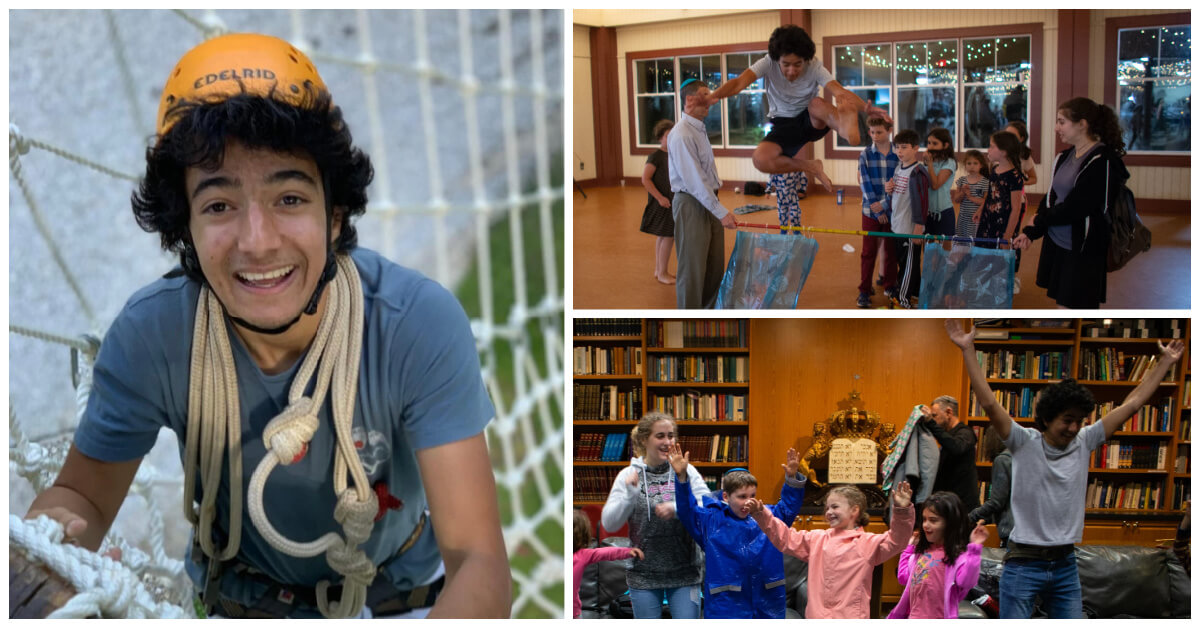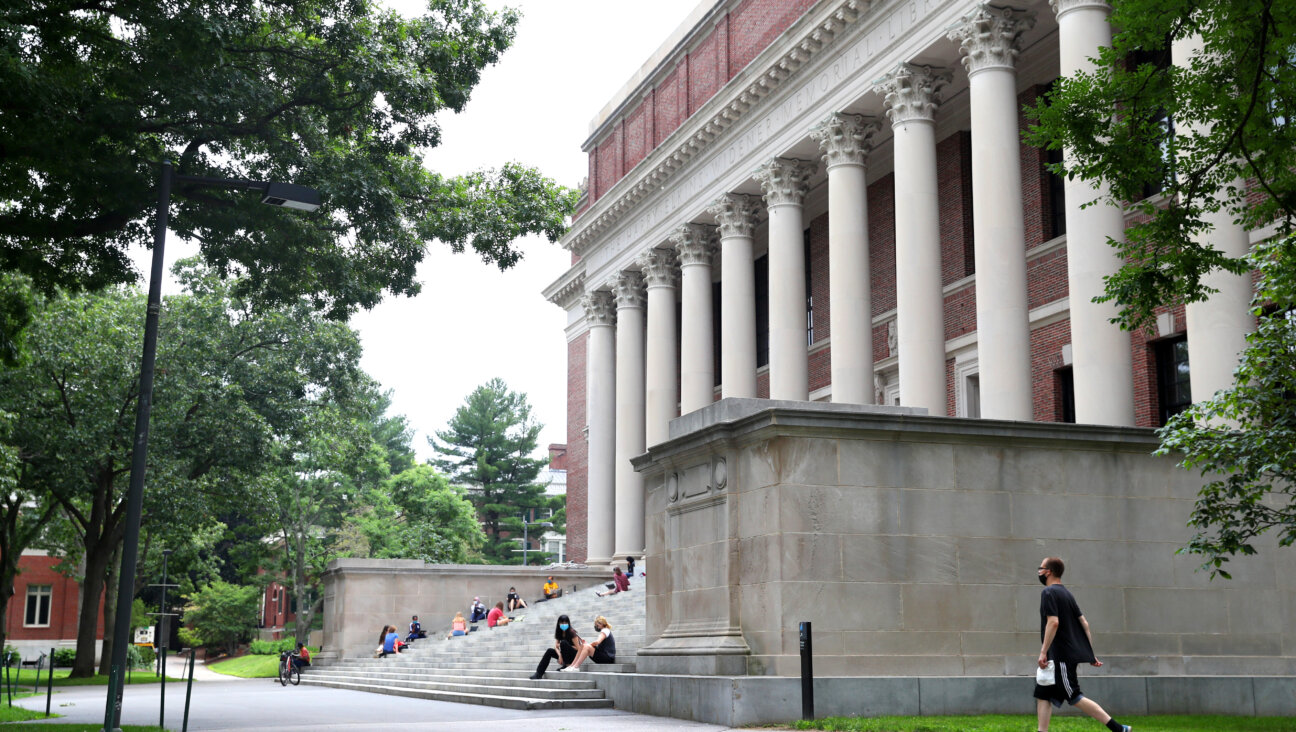An Eve Where Italian Was the Mameloshn
“It is an honor to be part of the work of the Center for Jewish History,” said Antonio Bandini, Italy’s consul general in New York, at last month’s “A Conversation With Nedo Fiano on His Book, ‘Il Coraggio Di Vivere,’” sponsored by the center, the Centro Culturale Primo Levi, The Jewish Heritage Project, New York University Casa Italiana Zerilli Marimò and the Italian Cultural Institute. “It is always difficult to speak of anything relating to the Shoah,” Bandini said. “It is not easy to react to Fiano’s book.”
Though Italian was the mameloshn (mother tongue) for many in the audience, excerpts from Fiano’s book were read in English translation by Susan Glasser: “I was born and grew up in one of the most ancient parts of Florence Via dei Rustici… a stone’s throw from the Palazzo Vecchio.… We were assimilated Jews, very secular, far from Orthodox. But… my mother celebrated some of the major Jewish holidays… I was part of the choir of the Florence Synagogue and I still remember many of the prayers I learned to sing there.”
Of his arrival at Auschwitz, Fiano wrote: “There were many Romans in my group.… They were great actors, able to recite… a quantity of jokes and the laughter they provoked was extremely therapeutic for our survival.… The Roman dialect stayed tenaciously in my mind.… ‘Hey, Ne,’ look the Mamser — bastard — (the S.S.) is coming… get away quick!’ they’d say in the Jewish-Roman dialect.” But the ever-present fear was, “You only go out of the camp durch den Kamin — through the chimney.”
Fiano, a handsome and elegantly groomed man, recalled: “Patton’s Third U.S. Army liberated us.… Whenever I see your Stars and Stripes (he paused)… I first saw over the camps of death.… We survivors could not believe our eyes.… We stopped singing and crying for fear that the S.S. would come back… I saluted by putting my hand over my heart as [U.S.] soldiers did…. It is important that the story of the Holocaust be told and retold… [now] as a new antisemitism is spreading over Europe.… If you don’t know about the past — you can’t react.”
“Most of what I am is motivated by his story,” said his son, journalist Andrea Fiano, who led the evening’s dialogue with his father. “Little is known about Italian Jews other than ‘The Garden of the Finzi-Continis’ or Primo Levi.… We have a synagogue in Ostia that predates Rome!” (In the program’s “Timeline of the Persecution of Italian Jews,” it notes: “August 22, 1938: A national census establishes that 58,412 Italian citizens have at least one Jewish parent; 46,656 are Jewish (1% of the total population.)” Among Fiano’s roster of facts are that 25,612 Jews had been hidden in churches and convents, and the startling revelation that “concentration camp San Sabba near Trieste (from where Jews were taken to Auschwitz)” had crematoriums!
* * *|
You might remember him as the title character in the TV series “Barney Miller,” or as the Tony Award-winning paterfamilias of the Sheldon Harnick-Jerry Bock Broadway hit “The Rothschilds,” but Hal Linden (Jewish National Fund national spokesman) is now “hamming” it up as Major-General Stanley in the New York Gilbert & Sullivan Players’ delicious production of “The Pirates of Penzance” at New York City Center. Do not miss it!
I wonder what Sir William Gilbert (libretto) and Sir Arthur Sullivan (music), those operatic satirists of Queen Victoria’s bureaucratic, stiff-upper lip Empire, would have made of this 6 feet 2 inches tall, 73-year old Jewish hunk who portrays the major-general with impeccable upper-crust articulation as though he was born to play the role. With shtick (I can’t reveal) and musical finesse, artistic director and conductor Albert Bergeret has made this production of “Pirates” a joy accessible to multigenerational audiences like the one that packed the City Center at the opening.
During our reception chat, Linden and I recapped our 1998 interview, when he was appearing in “Visiting Mr. Green.” He’d told me that his mother was born in Bialystok and his father was from Keidan in Lithuania: “A twice-a-year Jew who moved into Zionism and was one of the founders of B’nai Zion.… He was adamant about maintaining Jewish culture and tradition and it was he who formed my Jewish identity.” After the column appeared in the Forward, I got a call from a resident in a retirement home in the Bronx who told me he’d known Linden’s father, who’d been the secretary of the [Keidan] landsmanschaft (benevolent aid society).
* * *|
It takes a while to focus on who’s who amid the frenetic cast of characters agitatedly rushing through Michael Frayn’s riveting new play, “Democracy,” about the infiltration, some 30 years ago, of the inner sanctum of Willy Brandt (James Naughton) by the ingenuous and ever-so-helpful real-life East German spy Günter Guillaume (Richard Thomas). He so blindsided the Federal Republic of Germany’s Kennedyesque womanizing chancellor that it brought down the government. (Thanks to their stellar performances, I was able to block out the memory of Thomas’s portrayal of John Boy on the TV series “The Waltons,” and Naughton hawking “the purple pill” Nexium, on television.)
Set in a time and place that’s considered “old” history, “Democracy” is an intelligent and welcome theatrical excursion. At one point in the play, an adoring Guillaume describes Brandt’s laying of “his official wreath at the monument to the murdered Jews of the Warsaw Ghetto. He steps back. And then.… Once again the world is about to change in front of our eyes…” (Brandt kneels). Guillaume says: “For a moment I think, ‘No, no no! This time he has gone too far!’ But I’m wrong, and he’s right, because this is what the world remembers. That long moment when the German who has no cause to kneel… knelt for all of us.” As Guillaume’s duplicity escalated, I thought back to the PBS series “I, Claudius,” in which Claudius’s childhood friend, Herod, cautions him, “Trust no one.”
The Forward is free to read, but it isn’t free to produce

I hope you appreciated this article. Before you go, I’d like to ask you to please support the Forward.
Now more than ever, American Jews need independent news they can trust, with reporting driven by truth, not ideology. We serve you, not any ideological agenda.
At a time when other newsrooms are closing or cutting back, the Forward has removed its paywall and invested additional resources to report on the ground from Israel and around the U.S. on the impact of the war, rising antisemitism and polarized discourse.
This is a great time to support independent Jewish journalism you rely on. Make a Passover gift today!
— Rachel Fishman Feddersen, Publisher and CEO
Most Popular
- 1

News Student protesters being deported are not ‘martyrs and heroes,’ says former antisemitism envoy
- 2

News Who is Alan Garber, the Jewish Harvard president who stood up to Trump over antisemitism?
- 3

Politics Meet America’s potential first Jewish second family: Josh Shapiro, Lori, and their 4 kids
- 4

Fast Forward Suspected arsonist intended to beat Gov. Josh Shapiro with a sledgehammer, investigators say
In Case You Missed It
-
Fast Forward Jewish students, alumni decry ‘weaponization of antisemitism’ across country
-

Opinion I first met Netanyahu in 1988. Here’s how he became the most destructive leader in Israel’s history
-

Opinion Why can Harvard stand up to Trump? Because it didn’t give in to pro-Palestinian student protests
-

Culture How an Israeli dance company shaped a Catholic school boy’s life
-
Shop the Forward Store
100% of profits support our journalism
Republish This Story
Please read before republishing
We’re happy to make this story available to republish for free, unless it originated with JTA, Haaretz or another publication (as indicated on the article) and as long as you follow our guidelines.
You must comply with the following:
- Credit the Forward
- Retain our pixel
- Preserve our canonical link in Google search
- Add a noindex tag in Google search
See our full guidelines for more information, and this guide for detail about canonical URLs.
To republish, copy the HTML by clicking on the yellow button to the right; it includes our tracking pixel, all paragraph styles and hyperlinks, the author byline and credit to the Forward. It does not include images; to avoid copyright violations, you must add them manually, following our guidelines. Please email us at [email protected], subject line “republish,” with any questions or to let us know what stories you’re picking up.











